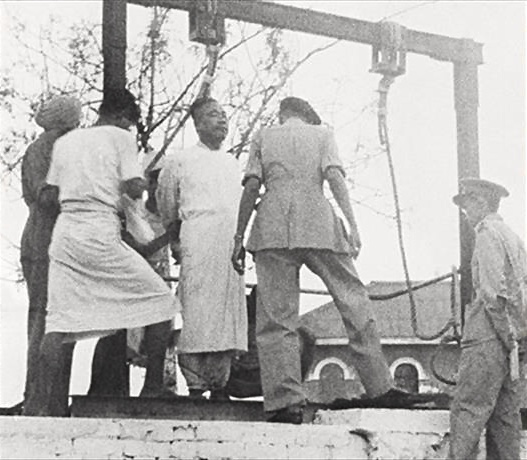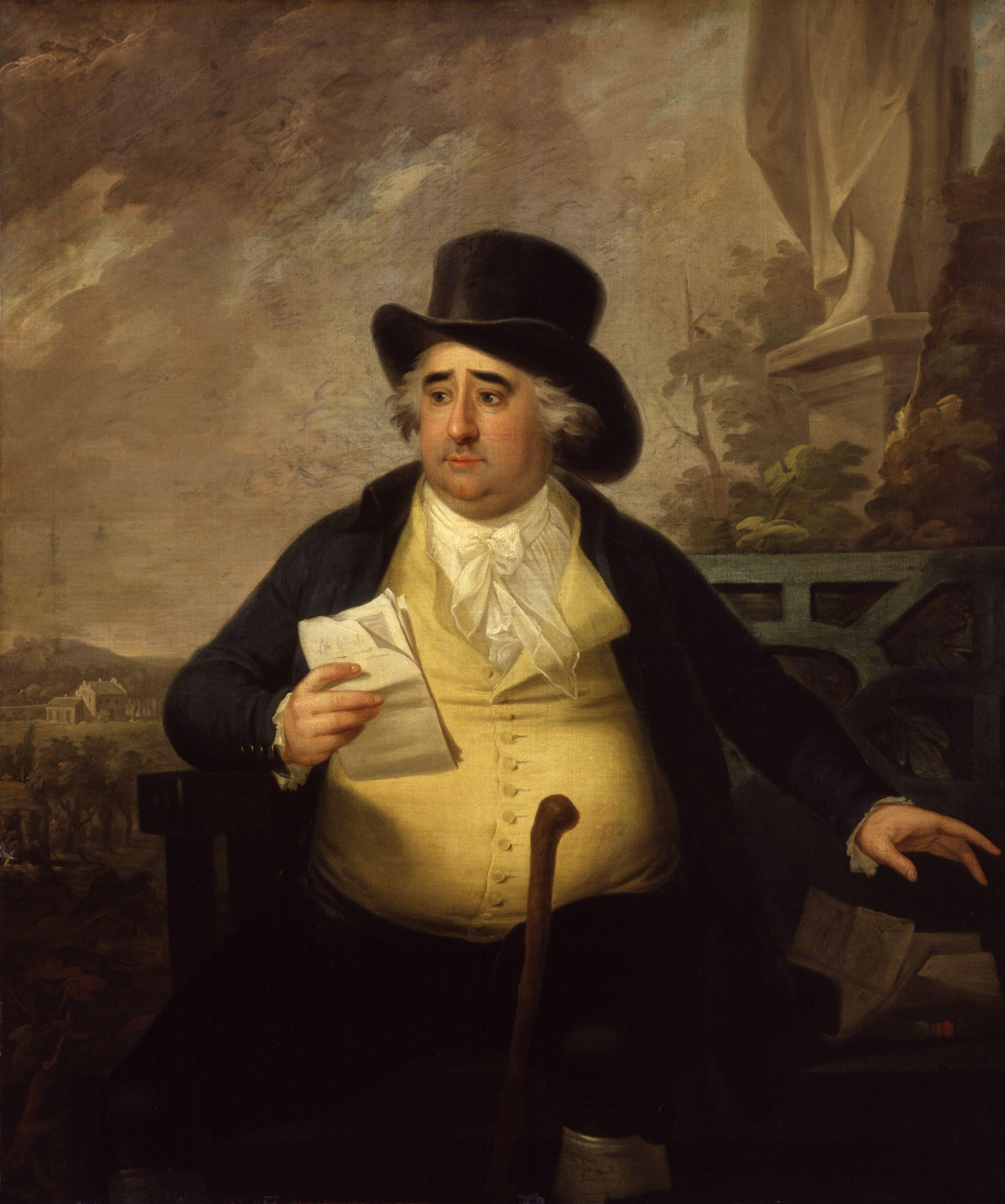|
Burma Independence Act 1947
The Burma Independence Act 1947 (1947, 11 Geo. VI, Ch. 3) was an Act of the Parliament of the United Kingdom that conferred independence on Burma, today called Myanmar. The Act received the royal assent on 10 December 1947. The Union of Burma came into being on 4 January 1948 as an independent republic outside the Commonwealth. Provisions The Act's most important provisions were:- * that Burma would become an independent country on 4 January 1948. * that the suzerainty of the British King over the part of Burma at the time known as the Karenni States would end on 4 January 1948. * that, generally, British subjects whose status as British subjects was due to a connection to Burma, would cease to be regarded as British subjects on 4 January 1948. Parliamentary debate Prime Minister Clement Attlee introduced the Bill in Parliament for its second reading. He explained that its purpose was to give effect to the will of the peoples of Burma as expressed by their elected represent ... [...More Info...] [...Related Items...] OR: [Wikipedia] [Google] [Baidu] |
Clement Attlee
Clement Richard Attlee, 1st Earl Attlee, (3 January 18838 October 1967) was a British politician who served as Prime Minister of the United Kingdom from 1945 to 1951 and Leader of the Labour Party from 1935 to 1955. He was Deputy Prime Minister during the wartime coalition government under Winston Churchill, and served twice as Leader of the Opposition from 1935 to 1940 and from 1951 to 1955. Attlee remains the longest serving Labour leader. Attlee was born into an upper-middle-class family, the son of a wealthy London solicitor. After attending the public school Haileybury College and the University of Oxford, he practised as a barrister. The volunteer work he carried out in London's East End exposed him to poverty, and his political views shifted leftwards thereafter. He joined the Independent Labour Party, gave up his legal career, and began lecturing at the London School of Economics. His work was interrupted by service as an officer in the First World War. In 1919, he ... [...More Info...] [...Related Items...] OR: [Wikipedia] [Google] [Baidu] |
Kachin People
The Kachin peoples ( Jingpo: ''Ga Hkyeng'', ; , ), more precisely the Kachin Wunpong (Jingpo: ''Jinghpaw Wunpawng'', "The Kachin Confederation") or simply Wunpong ("The Confederation"), are a confederation of ethnic groups who inhabit the Kachin Hills in Northern Myanmar's Kachin State and neighbouring Yunnan Province, China, as well as Arunachal Pradesh, Assam in Northeastern India. About one million Kachin peoples live in the region. The term Kachin people is often used interchangeably with the main subset, called the Jingpo people in China. The Jingpho language common to many of the Kachin has a variety of dialects and is written with a Latin-based script created in the late nineteenth century. A Burmese script version was subsequently developed. The Singhpo dialect is spoken in Northeast India and Jingpho in Southwest China. Kachin is an ethnicity that comprises various linguistic groups with overlapping territories and integrated social structures. Contemporary usage of K ... [...More Info...] [...Related Items...] OR: [Wikipedia] [Google] [Baidu] |
1947 In International Relations
It was the first year of the Cold War, which would last until 1991, ending with the dissolution of the Soviet Union. Events January * January–February – Winter of 1946–47 in the United Kingdom: The worst snowfall in the country in the 20th century causes extensive disruption of travel. Given the low ratio of private vehicle ownership at the time, it is mainly remembered in terms of its effects on the railway network. * January 1 - The Canadian Citizenship Act comes into effect. * January 4 – First issue of weekly magazine ''Der Spiegel'' published in Hanover, Germany, edited by Rudolf Augstein. * January 10 – The United Nations adopts a resolution to take control of the free city of Trieste. * January 15 – Elizabeth Short, an aspiring actress nicknamed the "Black Dahlia", is found brutally murdered in a vacant lot in Los Angeles; the mysterious case is never solved. * January 16 – Vincent Auriol is inaugurated as president of France. * January 19 – Ferry ... [...More Info...] [...Related Items...] OR: [Wikipedia] [Google] [Baidu] |
United Kingdom Acts Of Parliament 1947
United may refer to: Places * United, Pennsylvania, an unincorporated community * United, West Virginia, an unincorporated community Arts and entertainment Films * ''United'' (2003 film), a Norwegian film * ''United'' (2011 film), a BBC Two film Literature * ''United!'' (novel), a 1973 children's novel by Michael Hardcastle Music * United (band), Japanese thrash metal band formed in 1981 Albums * ''United'' (Commodores album), 1986 * ''United'' (Dream Evil album), 2006 * ''United'' (Marvin Gaye and Tammi Terrell album), 1967 * ''United'' (Marian Gold album), 1996 * ''United'' (Phoenix album), 2000 * ''United'' (Woody Shaw album), 1981 Songs * "United" (Judas Priest song), 1980 * "United" (Prince Ital Joe and Marky Mark song), 1994 * "United" (Robbie Williams song), 2000 * "United", a song by Danish duo Nik & Jay featuring Lisa Rowe Television * ''United'' (TV series), a 1990 BBC Two documentary series * ''United!'', a soap opera that aired on BBC One from 1965-19 ... [...More Info...] [...Related Items...] OR: [Wikipedia] [Google] [Baidu] |
Independence Acts In The Parliament Of The United Kingdom
Independence is a condition of a person, nation, country, or state in which residents and population, or some portion thereof, exercise self-government, and usually sovereignty, over its territory. The opposite of independence is the status of a dependent territory. The commemoration of the independence day of a country or nation celebrates when a country is free from all forms of foreign colonialism; free to build a country or nation without any interference from other nations. Definition of independence Whether the attainment of independence is different from revolution has long been contested, and has often been debated over the question of violence as legitimate means to achieving sovereignty. In general, revolutions aim only to redistribute power with or without an element of emancipation,such as in democratization ''within'' a state, which as such may remain unaltered. For example, the Mexican Revolution (1910) chiefly refers to a multi-factional conflict that even ... [...More Info...] [...Related Items...] OR: [Wikipedia] [Google] [Baidu] |
1947 In Law
It was the first year of the Cold War, which would last until 1991, ending with the dissolution of the Soviet Union. Events January * January– February – Winter of 1946–47 in the United Kingdom: The worst snowfall in the country in the 20th century causes extensive disruption of travel. Given the low ratio of private vehicle ownership at the time, it is mainly remembered in terms of its effects on the railway network. * January 1 - The Canadian Citizenship Act comes into effect. * January 4 – First issue of weekly magazine '' Der Spiegel'' published in Hanover, Germany, edited by Rudolf Augstein. * January 10 – The United Nations adopts a resolution to take control of the free city of Trieste. * January 15 – Elizabeth Short, an aspiring actress nicknamed the "Black Dahlia", is found brutally murdered in a vacant lot in Los Angeles; the mysterious case is never solved. * January 16 – Vincent Auriol is inaugurated as president of France. * January 19 ... [...More Info...] [...Related Items...] OR: [Wikipedia] [Google] [Baidu] |
1947 In Burma
It was the first year of the Cold War, which would last until 1991, ending with the dissolution of the Soviet Union. Events January * January–February – Winter of 1946–47 in the United Kingdom: The worst snowfall in the country in the 20th century causes extensive disruption of travel. Given the low ratio of private vehicle ownership at the time, it is mainly remembered in terms of its effects on the railway network. * January 1 - The Canadian Citizenship Act comes into effect. * January 4 – First issue of weekly magazine ''Der Spiegel'' published in Hanover, Germany, edited by Rudolf Augstein. * January 10 – The United Nations adopts a resolution to take control of the free city of Trieste. * January 15 – Elizabeth Short, an aspiring actress nicknamed the "Black Dahlia", is found brutally murdered in a vacant lot in Los Angeles; the mysterious case is never solved. * January 16 – Vincent Auriol is inaugurated as president of France. * January 19 – Ferry ... [...More Info...] [...Related Items...] OR: [Wikipedia] [Google] [Baidu] |
History Of Myanmar
The history of Myanmar (also known as Burma; my, မြန်မာ့သမိုင်း) covers the period from the time of first-known human settlements 13,000 years ago to the present day. The earliest inhabitants of recorded history were a Tibeto-Burman-speaking people who established the Pyu city-states ranged as far south as Pyay and adopted Theravada Buddhism. Another group, the Bamar people, entered the upper Irrawaddy valley in the early 9th century. They went on to establish the Pagan Kingdom (1044–1297), the first-ever unification of the Irrawaddy valley and its periphery. The Burmese language and Burma culture slowly came to replace Pyu norms during this period. After the First Mongol invasion of Burma in 1287, several small kingdoms, of which the Kingdom of Ava, the Hanthawaddy Kingdom, the Kingdom of Mrauk U and the Shan States were principal powers, came to dominate the landscape, replete with ever-shifting alliances and constant wars. In the second half ... [...More Info...] [...Related Items...] OR: [Wikipedia] [Google] [Baidu] |
U Saw
U Saw, also known as Galon U Saw ( my-Mymr, ဦးစော or my-Mymr, ဂဠုန်ဦးစော, lit. Garuda U Saw, ; 16 March 1900 – 8 May 1948), was a leading Burmese politician who served as Prime Minister of British Burma during the colonial era before the Second World War. He is also known for his role in the assassination of Burma's national hero Aung San and other independence leaders in July 1947, only months before Burma gained independence from Britain in January 1948. He was executed by hanging for this assassination. Early life and education U Saw was born on 16 March 1900 in Okpho, Tharrawaddy District, British Burma. He is the second son of four of the landowner Phoe Kyuu and Daw Pann. He educated at Roman Catholic missionary school in Gyobingauk. In 1927, he became a senior lawyer. He was married to Than Khin. Political career A lawyer by training, U Saw first made his name by defending Saya San, a former monk and medicine man, who became the le ... [...More Info...] [...Related Items...] OR: [Wikipedia] [Google] [Baidu] |
Dominion
The term ''Dominion'' is used to refer to one of several self-governing nations of the British Empire. "Dominion status" was first accorded to Canada, Australia, New Zealand, Newfoundland, South Africa, and the Irish Free State at the 1926 Imperial Conference through the Balfour Declaration of 1926, recognising Great Britain and the Dominions as "autonomous within the British Empire, equal in status, in no way subordinate one to another in any aspect of their domestic or external affairs, though united by a common allegiance to the Crown and freely associated as members of the British Commonwealth of Nations". Their full legislative independence was subsequently confirmed in the 1931 Statute of Westminster. Later India, Pakistan, and Ceylon (now Sri Lanka) also became dominions, for short periods of time. With the dissolution of the British Empire after World War II and the formation of the Commonwealth of Nations, it was decided that the term ''Commonwealth country'' shou ... [...More Info...] [...Related Items...] OR: [Wikipedia] [Google] [Baidu] |
Winston Churchill
Sir Winston Leonard Spencer Churchill (30 November 187424 January 1965) was a British statesman, soldier, and writer who served as Prime Minister of the United Kingdom twice, from 1940 to 1945 Winston Churchill in the Second World War, during the Second World War, and again from 1951 to 1955. Apart from two years between 1922 and 1924, he was a Member of Parliament (United Kingdom), Member of Parliament (MP) from 1900 to 1964 and represented a total of five UK Parliament constituency, constituencies. Ideologically an Economic liberalism, economic liberal and British Empire, imperialist, he was for most of his career a member of the Conservative Party (UK), Conservative Party, which he led from 1940 to 1955. He was a member of the Liberal Party (UK), Liberal Party from 1904 to 1924. Of mixed English and American parentage, Churchill was born in Oxfordshire to Spencer family, a wealthy, aristocratic family. He joined the British Army in 1895 and saw action in British Raj, Br ... [...More Info...] [...Related Items...] OR: [Wikipedia] [Google] [Baidu] |
Leader Of The Opposition (United Kingdom)
The Leader of His Majesty's Most Loyal Opposition, more commonly referred to as the Leader of the Opposition, is the person who leads the Official Opposition in the United Kingdom. The position is seen as the shadow head of government of the United Kingdom. By convention, the Leader of the Opposition is the leader of the largest political party in the House of Commons that is not in government. When a single party wins outright, this is the party leader of the second-largest political party in the House of Commons. The current Leader of the Opposition is Sir Keir Starmer, the Leader of the Labour Party. Starmer was elected to that position on 4 April 2020. The Leader of the Opposition is often viewed as an alternative or shadow prime minister, and is appointed to the Privy Council. They lead an Official Opposition Shadow Cabinet, which scrutinises the actions of the Cabinet and offers alternative policies. In the nineteenth century, party affiliations were generally less ... [...More Info...] [...Related Items...] OR: [Wikipedia] [Google] [Baidu] |
.png)


%2C_by_John_Trumbull.jpg)




